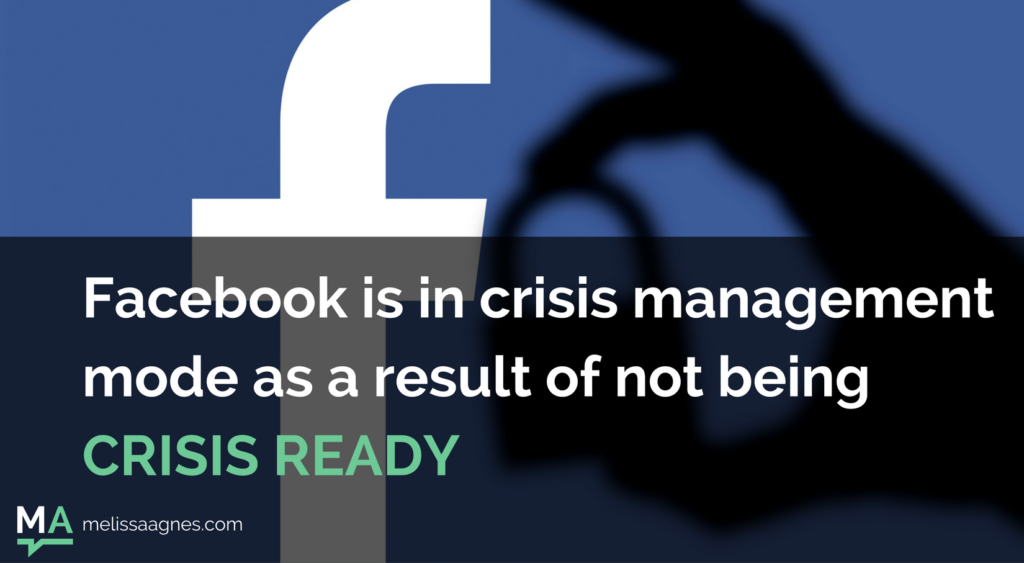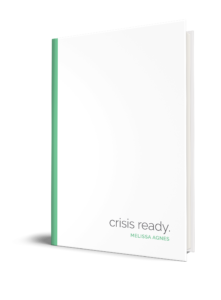
Image: Shutterstock
One of the things that I love about issue management, is the opportunity that it presents to organizations. Opportunity to develop unbreakable relationships with your stakeholders, build brand trust and credibility in your marketplace, and strengthen your overall culture, productivity, and profitability.
Unfortunately for Facebook, the Cambridge Analytica crisis it is now managing is the direct result of an issue that went mismanaged for years. Not only is this presenting the organization with severely impactful consequences and challenges that they now have to successfully navigate, but this whole situation is a giant missed opportunity for the social media leader.
Facebook’s missed opportunity
For years, the general public has been, for the most part, living under the illusion that free social media sites are in fact “free” and that they had control over their data and all the information they share and the actions they take on these sites. It’s easy to click “accept” without actually reading the lengthy privacy policies and terms of use that require our acceptance before joining these platforms, and it is even easier to not take notice of the changes made to these policies throughout the years. It’s also easy to go about your Facebook, Twitter, Gmail, Instagram, Snapchat—you get the idea—business without ever really questioning what is happening on the backend of things.
Facebook was well aware of this reality—as is Google, and Twitter, and all the other social media networks and apps that are leading the way. And it can certainly be blissful to conduct business in an ignorant environment that enables you to avoid impactful conversations and fly under the radar while pulling in billions of dollars of revenue year after year.
However, part of being crisis ready means that you are highly attuned with the risks that plague your organization, and that you have a culture that proactively seeks to both mitigate those risks and transform them into opportunities that strengthen the trust and credibility stakeholders have in your brand.
Facebook is now being hounded by congress and presented with class action lawsuits for their lack of effectively managing this issue throughout the years. An issue that was their responsibility and duty to manage, as Zuckerberg openly realizes. They’re also losing the trust of their community, who feel—whether rightfully or not—that they’ve been cheated and misguided all this time.
With the regulations around privacy and data protection, and the general misunderstanding by both the general public and lawmakers regarding Facebook’s (and other platforms’) collection and use of data, this was an issue that was bound to come to the forefront and reap this havoc eventually.
Hindsight being 20/20, Zuckerberg continues to express his regret for not having taken “a broad enough view of [their] responsibility,” expressing what “a big mistake” that has proven to be. (Clearly!)
But the thing is, this crisis was predictable.
This crisis was foreseeable. Inevitable, even, and a matter of “when”, not “if”. In which case, when you allow hindsight to be 20/20 on a risk that should have been foreseen and taken seriously, not only are you putting your organization at serious risk, but you’re missing out on some major opportunities.
For example, what if Zuckerberg had evaluated this likely high-risk scenario and consciously used it to, not only mitigate this entire Cambridge Analytica fiasco—which was highly feasible—but to position Facebook as a leader in providing users with easy access to have better control over their data. In other words, proactively taking the actions that they are now committed to taking anyway.
Done strategically and transparently—rather than hiding behind terms of use policies that they fully knew did not get read, which means that the risk of people feeling a sense of cheat and violation was inevitable—this mindset and approach would not have detracted from the success of their business model, while it would have also increased the trust and goodwill of their stakeholders in the platform, rather than the brand suffering from the lost trust and credibility that they are now experiencing.
It can be easy to miss these risks and their opportunities
I do believe that Zuckerberg is a leader who sincerely cares for the right reasons. I also know from my work in advising some of the world’s largest, most risk-prone organizations, how easy it can be to fail to evaluate the risks that lie in front of your business, especially when those risks have gone unnoticed for years and business is soaring. But the risk is there none-the-less and when it catches up to you, the consequences can be direly impactful.
This is why my job exists and this is why I’m so passionate about the value that organizations gain from having a crisis ready mindset and culture. Had Facebook been crisis ready on this high-risk scenario, they would not be in crisis management mode today.
What risks are you currently blind to?
If you would rather be crisis ready and gain from strategic opportunities and mitigated issues and crises, then this is a question worth answering—because odds are, you are probably prone to a lingering risk or two that can present your organization with strategic advantages if properly addressed now.
In fact, the third phase of the Crisis Ready Model is to conduct an in-depth investigation into your organization’s current processes, culture, high-risk scenarios, and stakeholder expectations for this precise reason. It’s an exercise that enables you to take giant leaps towards becoming crisis ready, helping you mitigate the risk of having to eventually be in crisis management mode and all the consequences that come along with it.
 Editor’s note: In my book, Crisis Ready—Building an Invincible Brand in an Uncertain World, I provide you with the exact blueprint for conducting these interviews and internal investigations, in order to strengthen your organization’s crisis readiness and build brand invincibility. You can order your copy of Crisis Ready, here.
Editor’s note: In my book, Crisis Ready—Building an Invincible Brand in an Uncertain World, I provide you with the exact blueprint for conducting these interviews and internal investigations, in order to strengthen your organization’s crisis readiness and build brand invincibility. You can order your copy of Crisis Ready, here.

Author of Crisis Ready: Building an Invincible Brand in an Uncertain World, Melissa Agnes is a leading authority on crisis preparedness, reputation management, and brand protection. Agnes is a coveted keynote speaker, commentator, and advisor to some of today’s leading organizations faced with the greatest risks. Learn more about Melissa and her work here.
